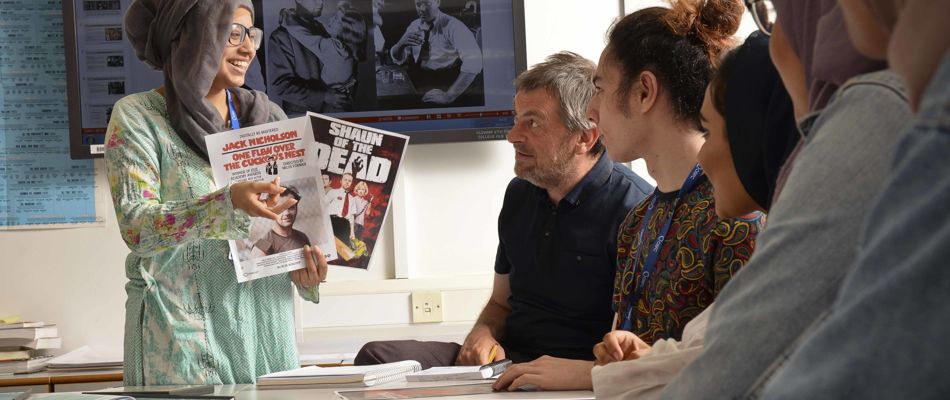Why we need a real baccalaureate for all
Back
What would I do if I could wave a magic wand and usher in a single education reform? I often get asked this and it is a hard call. There are some stand out issues as a result of the pandemic; adequate funding to narrow attainment gaps and first class digital access for example, although you could argue that these should be the bare minimum in a fully functioning, equitable education system. I have also campaigned extensively over the years for more equity between the state and private sector and fair, non-selective school admissions as well.
Nevertheless, my first choice would be for a complete overhaul of the 14-19 phase of secondary education, leading to a real baccalaureate award at 18 for all pupils. If the last year has taught us anything, it is that our assessment system is too heavily weighted in favour of GCSEs and A Levels. Look what a mess we fell into once exams were abandoned because of COVID. It is as if nothing else matters to a young person’s development, well-being or their ability to contribute to society in later life.
A real baccalaureate qualification would value so much more. It could encompass artistic endeavour, sporting prowess, participation in civic society and include the EPQ, instrumental music grades, other arts and sports awards and accredited schemes such as the Duke of Edinburgh Award or the National Citizen Service. An overarching award which includes all achievement would also eradicate the unnecessary, status -ridden distinction between academic and vocational pathways which has blighted the English education system for decades. Not all students would achieve to the same level, but everyone would complete the award whether in schools, sixth form and FE colleges or apprenticeship programmes. It would act as a portfolio of achievement and a passport to the next stage of education or training, without the demoralising language of pass or fail, vocational vs academic.
So why don’t we do it? I accept that English schools have been overburdened with (the wrong) reforms for the last decade and people are understandably wary of more change, but this transformation could be brought in very gradually. When something similar was suggested by the Tomlinson Review in 2004, it was envisaged that the transition would take ten years. It is sobering to think that we might already be benefitting from this approach.
And there would be the usual critics, railing against what they see as an “all must have prizes” approach and seeming to relish giving young people the opportunity to fail (as long as it isn’t their own children). But why are we tolerating a system in which around a third students don’t “pass” exams because of the way they are graded? Is it really the right thing for the 21st century to have so many students moving into the post-16 phase officially branded as failures? And does anyone trash the International Baccalaureate in this way, claiming it is a dumbed down qualification? They don’t because it has breadth, depth, rigour and is seen as a high-status choice.
Talk of a baccalaureate qualification often leads to claims that its supporters want to abandon GCSEs. The National Baccalaureate Trust, with which I am involved, and which is consulting about how a baccalaureate might work in practice, sees this as an evolutionary process. In the first instance we would want to wrap a baccalaureate award around existing qualifications. But would it be such a bad thing if GCSEs were to go? After all they were introduced at a time when most students left school at 16, which is no longer the case, and even their architect, the former Conservative Education Secretary Lord Baker, thinks they have outlived their usefulness.
The beauty of a final substantial qualification at 18 is that the focus of students, teachers, parents, and society would inevitably shift towards achievement at the end of Year 13 and hopefully in a way that takes a more holistic view of education. I firmly believe this cultural change would influence the tone of the early secondary school phase and filter down to primary and even the early years as this is a fundamentally different view of what education could and should be.
The challenge now is to get political buy-in for this sort of reform. We have supporters across the state and private sector, political parties and employer organisations. Schools and colleges will rightly want to know where funding comes from for what would be a more ambitious curriculum if creativity, citizenship, sport, and other enrichment activities were to be valued as highly as academic and technical qualifications.
But this would be a huge investment in our young people and our future. The pandemic has flushed out many structural and ethical problems with our school system and the endless rhetoric about “building back better” will be meaningless unless we use this moment to take a long hard look at whether a system devised for the mid 20thcentury is appropriate for young people to thrive in the mid 21st century.
Our consultation is here. We need as many people as possible to respond to help us build support for this type or reform. Now is the time to think more boldly. Do look and join us in this campaign.
Fiona Millar is a writer, journalist and campaigner who is a member of the National Baccalaureate Trust.

